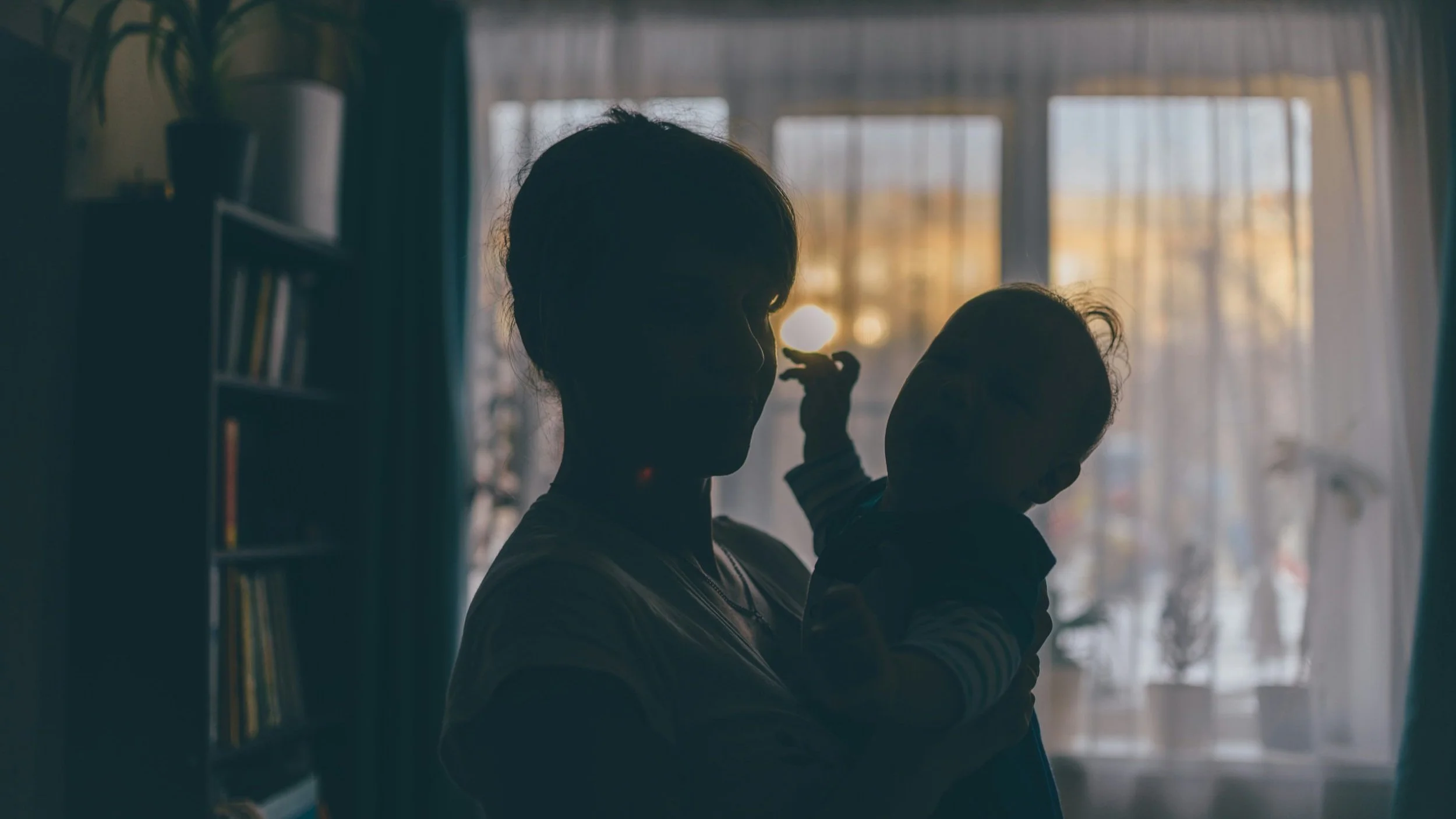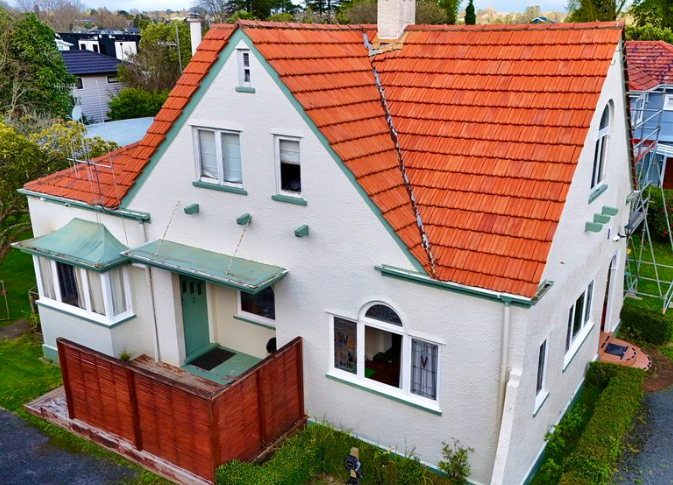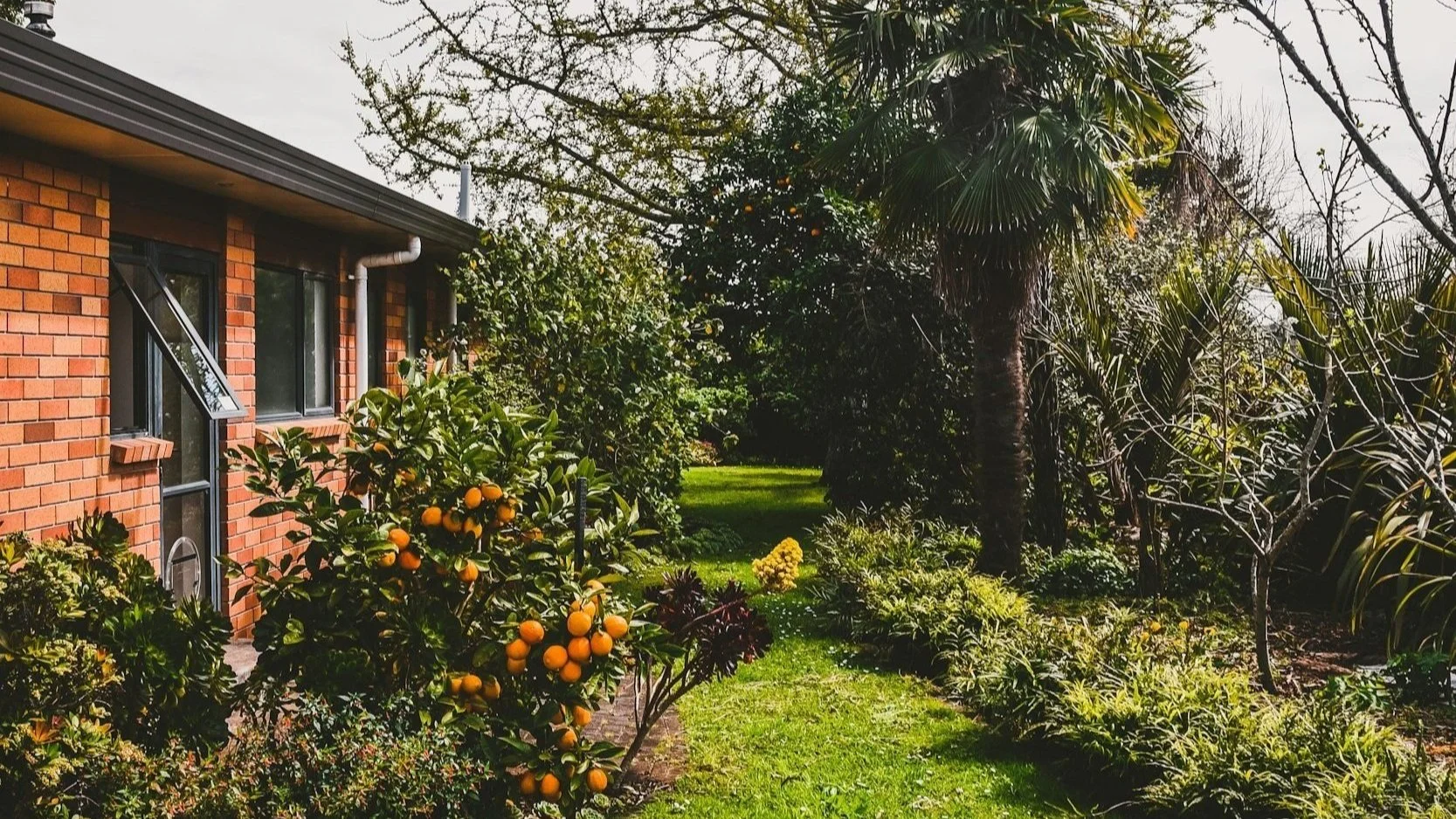June 2025 pānui
Amanda Kelly, Helen Robinson, Dr Jo Gamble and Sharon Shea at the Women’s Homelessness Discussion Panel at HomeGround.
Accelerating Action: Ending women's homelessness begins with equity and understanding
Kia ora koutou,
Our June pānui brings together voices, data, and calls to action for a future where every woman can live with dignity, safety, and mana.
Last week, we hosted the Women’s Homelessness Discussion Panel at HomeGround in Tāmaki Makaurau. Panelists Sharon Shea, Helen Robinson, Dr. Joanna Gamble, and facilitator Amanda Kelly explored the critical intersections of women’s health, housing, and financial wellbeing.
Read our blog here, which summarises the kōrero.
Sharon offered a powerful Mana Wāhine perspective grounded in Te Tiriti o Waitangi. Jo spoke to the challenges women face in their financial journeys and retirement with some moving stories of what many women are facing. Helen shared findings from CEWH’s research report, Ngā Ara ki te Kāinga, with a powerful call to action:
“Take what you know to be true, and speak it until you don’t need to anymore,” she said.
The energy in the room was palpable, with sector workers, and wāhine and tāne with lived experience coming together to tautoko the kōrero. Rounds of applause echoed throughout the evening.
A heartfelt thank you to everyone who came out on a rainy night to join us in person, and to those who tuned in online. As Helen said at the end of the panel:
“One of the delightful things for us tonight is simply that you are here, in this room on a Monday night, when many of you could be doing a lot of other things, and that many of you are joining online too.”
In recent weeks, we've seen growing evidence that women are being left behind, and we know that the inequalities driving this can lead directly to homelessness.
Law changes made without gender impact analysis, reduced police responses to family violence, and the lasting economic scars of abuse are compounding an already urgent crisis.
Pay equity isn't just a workplace issue, it's directly connected to the wellbeing of our tamariki and the rising tide of homelessness among women.
The Coalition to End Women’s Homelessness welcomes the new investments in tamariki but we stress that these efforts will fall short without urgent, targeted action on women’s homelessness.
Without bold, sustained investment in the wellbeing of women, especially wāhine Māori, we risk undermining the very outcomes we seek to achieve for all whānau.
As our panel event came to a close, Helen Robinson offered a powerful reminder of what this moment demands:
“Voices must rise. Your voice must rise. You must claim it. You must not shut up. And particularly to every woman in this room: get angry, stay angry, and keep using that in a really good way.”
Nāku noa,
Victoria Crockford
Project Director, Coalition to End Women’s Homelessness
NEWS AND VIEWS
We’re hiring: CEWH seeking a Kaihautū – a wāhine Māori leadership role in ending women’s homelessness
We are excited to be recruiting for a new Kaihautū; a wāhine Māori leader to join our team. This new role reflects our commitment to Te Tiriti o Waitangi and to meaningful representation.
The Kaihautū will work alongside our Project Director as a partner in leading our next phase, bringing policy expertise, housing sector knowledge, and a staunch advocacy for wāhine experiencing homelessness.
This is a part-time, fixed-term role through to April 2026, with flexibility in how it’s structured.
Find out more and read the job description here.
New blog: Improving outcomes for wāhine Māori starts with understanding Mana Wāhine
Too many Māori women in Aotearoa are living the painful reality of homelessness. They are unseen, unheard and unsupported.
Sharon Shea MNZM (Ngāti Ranginui, Ngāti Hine, Ngāti Hauā, Ngāti Hako) says in this blog, that the path forward begins with Mana Wāhine; honouring Māori women’s leadership, dignity, and voice in housing policy and beyond.
Sharon shared her insights at our Women’s Homelessness Discussion Panel last week. Watch a short video of Sharon here as she shares what resonated most with her from the panel discussion held last week.
Read the blog here
CEWH welcomes social investment in tamariki, but urge action on women’s homelessness to ensure success
Many of you will have seen the headlines about the new Social Investment Fund and its focus on the first 2000 days of life. We are pleased to see support for these critical initiatives that are already creating beneficial outcomes for our tamariki. We will continue to advocate strongly for the Social Investing Agency to lead the creation of a coordinated approach to women’s homelessness, which our research shows is an intergenerational issue that cuts across multiple agencies as sectors.
Read our statement on the focus of the Social Investment Fund here
Concerns over police response to family violence
Family violence support agencies are raising the alarm over changes to police response protocols, saying victims are being left without help. Police have reduced attendance at mental health-related callouts, including some that overlap with domestic violence, in order to conserve resources. Agencies like SHINE and Women’s Refuge report increasing cases where police don't respond, potentially putting women at greater risk.
With family violence a leading driver of women’s homelessness, these changes may undermine decades of progress encouraging victims to seek support.
Read more about this on RNZ here
Good Shepherd New Zealand releases powerful paper and research
It’s fantastic to see our research, Ngā Ara ki te Kāinga, referenced in a recent paper published by Good Shepherd New Zealand.
Their paper Issues facing women experiencing harm and hardship brings together data and research from multiple sources, offering a snapshot of the many intersecting factors that contribute to women’s disadvantage in Aotearoa.
While there is valuable work happening across the community, philanthropic, and government sectors, the findings underscore that significant change is still needed. Women continue to experience poorer financial outcomes and remain especially vulnerable to harm and hardship.
Read the full paper here on the Good Shepherd New Zealand website.
Good Shepherd New Zealand’s research Long-term impacts of family violence economic abuse shines a light on women’s experiences of economic abuse, and the financial and economic consequences that can continue long after a relationship has ended.
Good Shepherd found that over the course of a year, 60% of Women’s Refuge clients who completed a risk assessment identified they had experienced at least one form of economic harm. Most (72%) reported being excluded from decisions about shared or household money, and a similar number (68%) reported being stopped from having their own money.
Women interviewed discussed how houses, children, and the legal system were weaponised against them after leaving the relationship - burning them out emotionally and pushing them further into financial hardship.
Case studies include that of Amber who found herself to be homeless after suffering financial and emotional abuse from her partner John:
When Amber left the relationship, she was homeless so slept on her sister’s lounge floor for a month, after which she moved into her sister’s boyfriend’s sleepout for a month. The lack of suitable housing meant that she was unable to have her children to stay until she found something more settled and permanent.
Read the research here on the Good Shepherd New Zealand website.
Haumaru Housing rent subsidy for people over 65
Haumaru Housing is dedicated to providing affordable homes for older Aucklanders. They’ve recently updated their model to support more seniors in need. Alongside welcoming IRRS tenants, Haumaru now offers a rent subsidy of 50% off market rent on selected one-bedroom and bedsit units for singles or couples aged 65 and over.
We acknowledge the team at Haumaru for this action, which opens up an additional opportunity for older women who are not on the housing register, but in need of housing support, to find an affordable home.
To learn more about eligibility, call the Haumaru Placement Team on 0800 430 101.
Housing First Backbone seeks Aucklanders for housing research
Housing First Backbone is launching a first-of-its-kind research in Aotearoa to understand public views on housing insecurity and homelessness. They’re inviting Aucklanders to join evening focus groups in late June or early July. Participants will receive a $50 Prezzy card. Please note: those working in housing or homelessness support are not eligible. Spaces are limited — sign up to be considered.
Homelessness told through the eyes of wāhine Māori, Teiti Nepia, in documentary HOME
A recent RNZ article highlights Teiti Nepia’s lived experience of homelessness, shared through her short documentary HOME.
Teiti spent months living outdoors in Wellington, documenting her journey as she struggled to find affordable housing after returning from Australia. After her time living outdoors, Nepia now lives in social housing and hopes her film will inspire greater awareness and change.
The article notes research from the Coalition to End Women’s Homelessness, which found that four out of five homeless women in Aotearoa are Māori.
Read the article on RNZ here
The Guardian: Unpacking the rapid rise of homelessness amongst women in Australia
A recent article in The Guardian highlights the alarming rise in homelessness among women in Australia, growing six times faster than for men, driven largely by domestic and family violence.
It follows the story of Linh, a mother who escaped an abusive relationship only to face months of sleeping in her car with her baby.
“It was so stressful, not knowing where we were going the next day or what might happen. I felt like crying all the time. But I held back my tears until the night, so Anh wouldn’t see,” said Linh.
The article underscores how secure housing is not only essential for safety and recovery, but a foundation for rebuilding lives and ending cycles of trauma.
Read the article here
Housing Australia designs $1 billion program for crisis and transitional accommodation
Late last year Housing Australia released guidance on the National Housing Infrastructure Facility (NHIF), a new program aimed at increasing crisis and transitional housing for women and children escaping domestic violence, as well as youth experiencing homelessness across Australia.
Find out more here
Watch: A Home of Hope for Solo Mothers - When a landlord chooses to be the change we want to see
This powerful video tells the inspiring story of the Young Mums House project - an initiative born from the urgent need to provide safe, stable housing for young mothers facing homelessness or unsafe conditions. Led by the team at 20Twenty Housing, this community-driven effort offers more than shelter: it’s a home filled with love, support, and the opportunity to heal and thrive.
The story features heartfelt interviews with four solo mums who share their journeys of overcoming trauma and rebuilding their lives through education, employment, and parenting.
At its heart is the vital partnership between landlords Ray and Wendy, who turned their family home into a haven, showing that landlords can be part of the solution.
Watch the video here.
Home of Hope
POLICY AND POLITICAL INSIGHTS
Rushed law change risks deepening homelessness crisis for NZ women
The Pay Equity Amendment Bill was rushed through all stages in Parliament under urgency. This was a deeply disappointing move, particularly for the 57,000 women experiencing homelessness across Aotearoa.
Pay equity isn't just a workplace issue, it's about whether women can afford a safe, secure place to call home - especially as they age. Fast-tracking changes without proper scrutiny or consultation risks pushing even more women to the margins.
Read our statement on why pay equity is so critical to preventing women’s homelessness here.
Budget 2025: How does it shape outcomes for women?
A recent article in The Conversation, explores how Budget 2025 may shape outcomes for women, particularly in relation to economic participation, pay equity, and long-term financial wellbeing.
The article notes the importance of gender-aware government budgeting, highlighting how factors such as childcare access, labour market participation, and unpaid care work impact women’s financial stability. These issues are especially relevant for wāhine Māori and women at greater risk of homelessness, and may influence future policy and voter engagement.
Westpac data shows that men have, on average, a 16% higher KiwiSaver balance than women. Proposed changes to KiwiSaver contributions and the retirement age could disproportionately affect women, who typically live longer and retire with less.
Pay equity, valuing unpaid care work, and better childcare support are key to closing this gap and preventing economic insecurity in later life; a factor closely linked to women’s risk of homelessness.
This article spoke to our concerns about the system impact of the pay equity changes to women’s housing security.
Read the article here
He iti te mokoroa, nāna i kati te kahikatea
The grub may be small, but it cuts through the kahikatea
Vic, Helen, Jo, Caroline, and Jill








